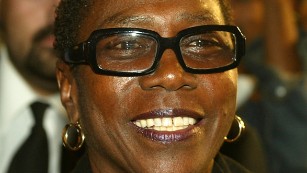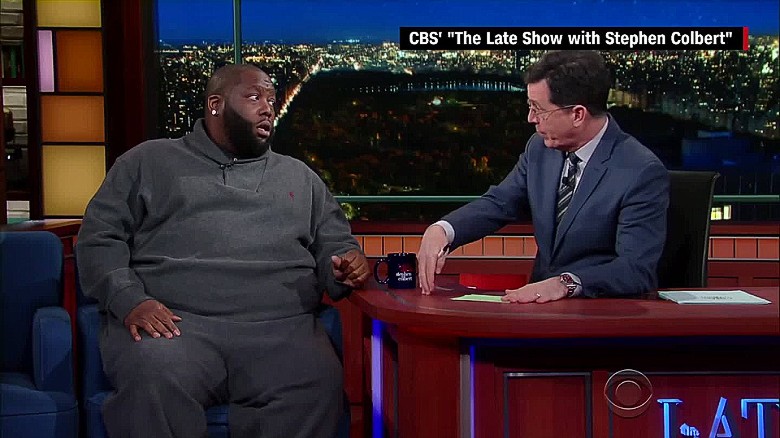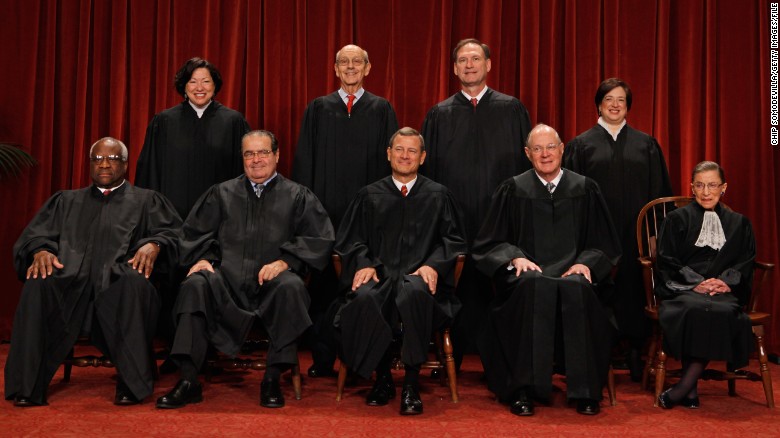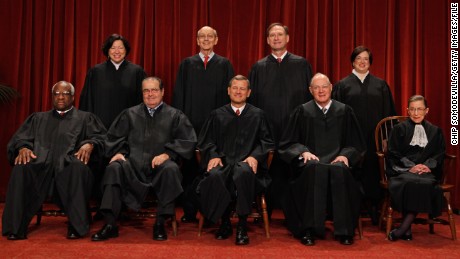Afeni Shakur Davis, Tupac's mother, dies at 69
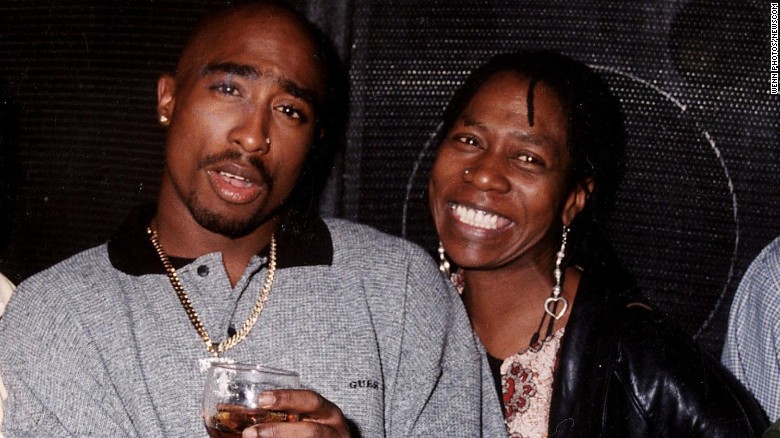
Tupac Shakur's mother Afeni dies at 69 ...
Story highlights
- Tupac's mother was "well-loved" community member, police say
- Afeni Shakur Davis spoke about how Tupac helped her beat drug addiction
- Police responded to a call of cardiac arrest at Shakur Davis' Sausalito home
(CNN)Afeni
Shakur Davis, the mother of one of hip-hop's most seminal and iconic
figures, has died at age 69, the Marin County, California, sheriff's
office said Tuesday.
Though
she is best known as Tupac Shakur's mom, Shakur Davis also was a Black
Panther as a young adult and an activist and philanthropist in her later
years.
Deputies
responded to a family member's call reporting "a possible cardiac
arrest" at Shakur Davis' Sausalito home about 9:34 p.m. Monday, the
Marin County Sheriff's Office said.
Shakur
Davis was taken to Marin General Hospital, where she died at 10:28
p.m., the office said. There was nothing suspicious about her death and
there's no evidence of foul play, Lt. Doug Pittman said Tuesday. An
autopsy was scheduled for later in the day.
"Sheriff's
Coroners Office will lead investigation to determine exact cause &
manner of Afeni Shakur's death," the office said in a tweet.
Shakur Davis was a "well-loved, well-respected" member of the community, Pittman said.
"Miss
Shakur has had an extensive background not only in the community but
her involvement with so many things," he said. "She's been a leader, a
person people followed. All that said about who she's been and where's
she's at now, this is a tragic loss for this community."
The
Shakur family, in a statement, said she "embodied strength, resilience,
wisdom and love. She was a pioneer for social change and was committed
to building a more peaceful world."
From drugs to arts
In a 2005 interview ahead
of the opening of the now-shuttered Tupac Amaru Shakur Center for the
Arts in Stone Mountain, Georgia, Shakur Davis recalled how her life was
almost derailed by drugs and how her son got it back on track.
Her
drug use made her so oblivious to what was happening in her life that
when someone told her in 1990 that her son -- then on the precipice of
becoming the biggest name in hip-hop -- was going to be on "The Arsenio
Hall Show," she thought the person was lying, she said.
In the mid-1980s, she was
homeless in New York and "messing around with cocaine," Shakur Davis
said. Despite the drug use, she was still coherent enough to realize
that Tupac would become a product of the streets if she didn't make
different choices.
"I was running
around with militants, trying to be badder than I was, trying to stay up
later than I should," she said in the 2005 interview.
She
decided to enroll Tupac in the 127th Street Ensemble, a Harlem theater
group, something she called "the best thing I could've done in my
insanity." They later moved to Maryland, where she enrolled him in the
Baltimore School for the Arts, and then to a small town outside
Sausalito.
It was there that Tupac confronted her about her cocaine use.
"He
asked me if I could handle it, and I said yeah because I'd been dipping
and dabbing all my life," she said during the interview. "What pissed
him off is that I lied to him."
'Pac
told the local drug dealers not to sell to her, she said, and he told
his mother to get clean or to forget about being involved in his life.
'Arts can save children'
She
got clean in 1991, she said, and when her son was gunned down in Las
Vegas in 1996, she resisted the urges to delve back into her old bad
habits. She instead founded Amaru Entertainment to keep her son's music
alive.
Later, she realized that her life -- mistake-ridden as it may have been -- might serve as a lesson to others.
"Arts
can save children, no matter what's going on in their homes," she said.
"I wasn't available to do the right things for my son. If not for the
arts, my child would've been lost."
She
provided the majority of the money to begin the $4 million first phase
of the arts center, while her Tupac Amaru Shakur Foundation hosted
poetry and theater camps for youngsters in the Atlanta area.
The family said she established the foundation to "instill a sense of freedom of expression and education through the arts."
The family said she established the foundation to "instill a sense of freedom of expression and education through the arts."
"I
learned that I can't save the world, but I can help a child at a time,"
she said, pointing out that her new life of philanthropy wouldn't have
been possible without the influence of her legendary son. "God created a
miracle with his spirit. I'm all right with that."
And as much as she credited
Tupac with inspiring her to help others, the tribulations she endured in
raising him weren't lost on the multiplatinum artist. He regularly
invoked her in his music, perhaps never as directly as in his
chart-topping song, "Dear Mama."
In it, he rapped,
"And even as a crack fiend, mama, you always was a black queen, mama/I
finally understand, for a woman it ain't easy trying to raise a man/You
always was committed, a poor single mother on welfare, tell me how you
did it/There's no way I can pay you back, but the plan is to show you
that I understand."
Shakur Davis is survived by a daughter, Sekyiwa Shakur.

.jpg)







